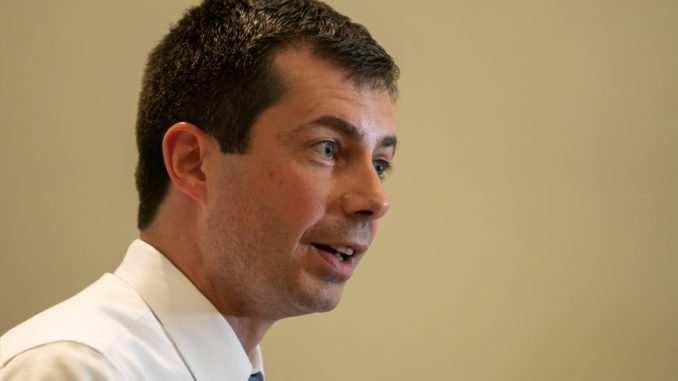
Elaijah Gibbs-Jones
NABJ Monitor
Democratic presidential candidate and South Bend, Indiana, Mayor Pete Buttigieg breaks down how he plans to support HBCU and black LGBTQ communities, his view on the mass shootings and whether he still has confidence in his South Bend police chief given the city’s relationship between the black community and the police force.
One of your opponents, Elizabeth Warren, is proposing $50 billion in federal grants to support HBCUs. Do you support this plan?
We have also proposed support for HBCUs with dedicated funding as part of our doubles plan, which is designed to address systemic racism across the country. One of the best things we can do in education is support HBCUs and other minority serving institutions.
I propose we expound Pell Grant funding and make Pell Grants eligible to cover living expenses not only tuition. I think we should have a more generous public service loan forgiveness program, so when you graduate you are awarded for choosing many of the fields that are so important to us but don’t always compensate us well.
It’s been reported you have been meeting with black LGBTQ activists in small groups. What have you learned from those meetings, and do you think those conversations will be helpful with connecting with southern Christian voters?
What’s been so striking as I engage with black LGBTQ activists is their experience of intersection of so many challenges and inclusion of this country. When you are black that creates a set of challenges. When you are LGBTQ that creates a set of challenges and I think it’s no accident that some of the most vulnerable people in America today include, for example, black trans women, who are being killed in astonishing and alarming rates.
What’s also been exciting though is to see how many opportunities are being created for empowerment, it actually overlaps with faith commandments. We’ve been meeting with a lot of black LGBTQ faith leaders, and it’s a chance to break a part of the scenario that has communities of faith and the LGBTQ world pinned against each other. I think we can’t act as the different experiences, or exclusions are the same. For example, being a gay man I do not know what it is like to be a trans woman of color let alone what is like to experience racial discrimination. But what we can do is go to these different patterns of exclusion as a source of motivation and solidarity to support one another and people who are not like me help make it possible for people like me to have the right to marry.
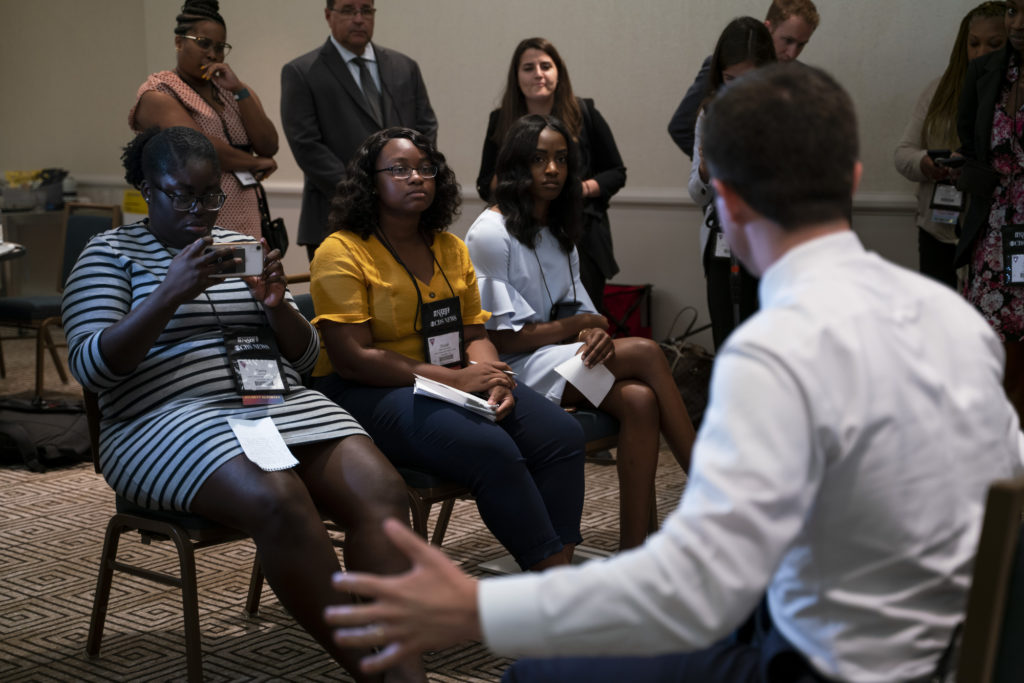
What is your plan on improving infrastructure in black communities like New Orleans and Miami and educating them about climate change?
We’ve got to look at what’s underground. Look at the infrastructure and political failure that led to the poisoning of mostly Americans of color in Flint. This is a matter of infrastructure justice. I think the biggest thing we need to do is make it part of the discussion. Often those who have been racially excluded are the ones who are most vulnerable.
What are your thoughts on the trans military ban and plans you would take to right the wrongs of the current president?
The trans military ban would end on day one when I am president. We’re talking about Americans who are willing to serve their country having their careers threatened by a president who avoided serving when it was his turn. This administration thinks somehow thinks that is something to gain by targeting one of the most vulnerable groups in America.
With the recent mass shootings, do you believe it is a gun problem or a mental health problem and what policy are you promoting to fight this?
It is a gun violence issue. While there is a lot to be done throughout mental health, that can’t be used as an excuse to move past the very simple fact that we are the only country in the developed world where this happens routinely.
We’ve had a 7% decline among black voters in the 2016 election, how exactly do you plan to gain the black vote, especially in a time like this?
A part of how I plan to earn the black vote is through proposals like the Douglass Plan that speak to the differences in everyday life that will be brought about when we do everything from breaking down barriers to access to capital for black entrepreneurs to making sure there is equity in our health system for black patients to criminal justice reform, democracy reform and a new voting rights act and beyond. It’s about the kind of engagement you’re doing, so I made a point of engaging in many different ways. Not just preaching what I’ve got to offer but listening to black communities.
Given everything that is going on in South Bend and the relationship between the black community and the police force, do you still have confidence in your police chief?
I do because even though there is a variety of different opinions across the community, one of the things I saw is a family of the person who was shot talking about how they know and trust the police chief. Not everyone feels the same way and I know that and respect that, but I am also not going to let one person take all of the accountability for a systemic problem that we’re facing in our community.
A lot of it falls on the community as a whole and me as the leader of the community. What we are trying to focus on is solutions that are going to make a difference. We’ve done a lot over the years but it is clearly not enough, because we are not where we need to be in terms of that trust. We’re inviting members to weigh in our policies on using force and policies like body cameras to make sure there’s that inclusion. Obviously, we’re not the only community facing this but it’s a central concern.

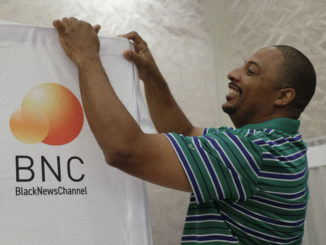
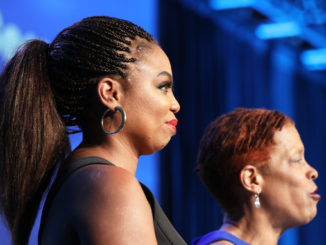
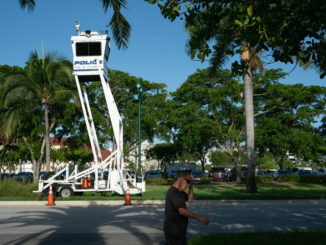
Be the first to comment